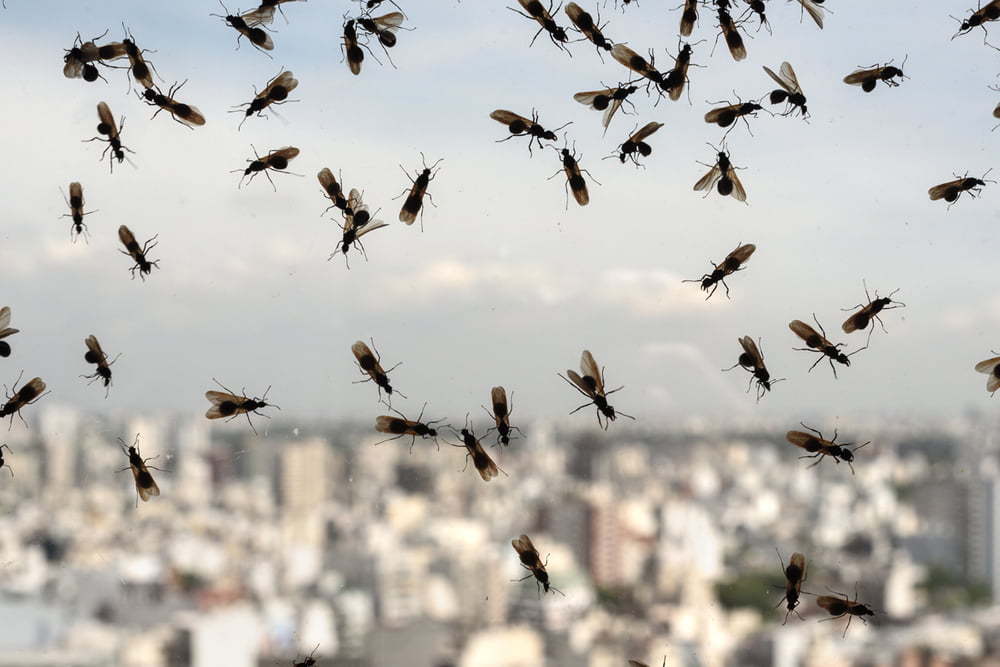Although they only appear for a short time, flying ants are often uninvited troublemakers. Learn here how to effectively fight flying ants.
Flying ants are found mainly between May and midsummer. In winter, you hardly ever encounter flying ants. With some tips you can keep these insects away from your home or get rid of them effectively.
Content
Are flying ants dangerous?
Fend off flying ants
Home remedies against flying ants
Contents
Flying ants – a problem?
Although flying ants are not poisonous, they are still a nuisance. Especially their large number makes them real pests. To make matters worse, their swarming behavior occurs at a time when many people want to let the fresh summer air into the house and in this way also unintentionally let flying ants in. The animals also quickly become unwanted guests during stays in the garden.
Fend off flying ants
The best and most effective way to fight flying ants is to prevent the insects from entering your home in the first place. There are several practical tips for this, which will help you prevent them from entering your living space:
Insects are attracted to light sources in the dark, so you should make sure to keep windows closed overnight or secure them accordingly.
The use of fly screens is especially recommended, as they effectively prevent flying ants from entering the room through open windows.
Seal cracks and holes in the exterior walls of the house and window frames with silicone.
Flying ants are also attracted to food. You should therefore take care not to leave food open, but close it promptly or put it away.
Deter flying ants with home remedies.
It is also possible to deter flying ants with certain scents:
Lavender emits an odor that is repellent. Thus, you can create an aromatic shield with strategically placed fresh or dried plants on doors and windows.
Ants will also stay away from acidic substances, which is why vinegar and lemon juice are also suitable home remedies against flying ants.
Attention: vinegar and lemon juice should not be used near plants, as they can be damaged.
Removing flying ants
If it has already come to the fact that the winged ants have strayed into your apartment, now it’s a matter of actively driving them away or killing them. First of all, find out where the nest is located. To do this, trace the course of the ant trails.
There are several possible applications that are performed directly on the nest. For example, you can spray the nest with wormwood liquid manure or pour yeast dissolved in water into it.
To control the ants outside the nest, traps and confusion tactics are the most effective methods. Commercially available sticky traps work, as do various home remedies, including, for example:
- a bowl of stale beer
- a mixture of sugar and staghorn salt
Less final for the ants, but just as effective, are agents that irritate the insects and restrict their freedom of movement. One way of doing this, for example, is to disrupt the ant trails through the selective use of acidic substances.
What are flying ants?
Contrary to common misconception, flying ants are not a separate species. Rather, they are mating males and females of various ant species that develop wings between May and midsummer to embark on their nuptial flight. This lasts only a few hours. Then the males enter and the females shed their wings once they have found a place for their nest.
Did you know. Flying ants are raised in the colony specifically to start a new colony. This allows the otherwise flightless animals to travel greater distances, find mates from other colonies more easily, and scout out suitable sites for their own burrow.



